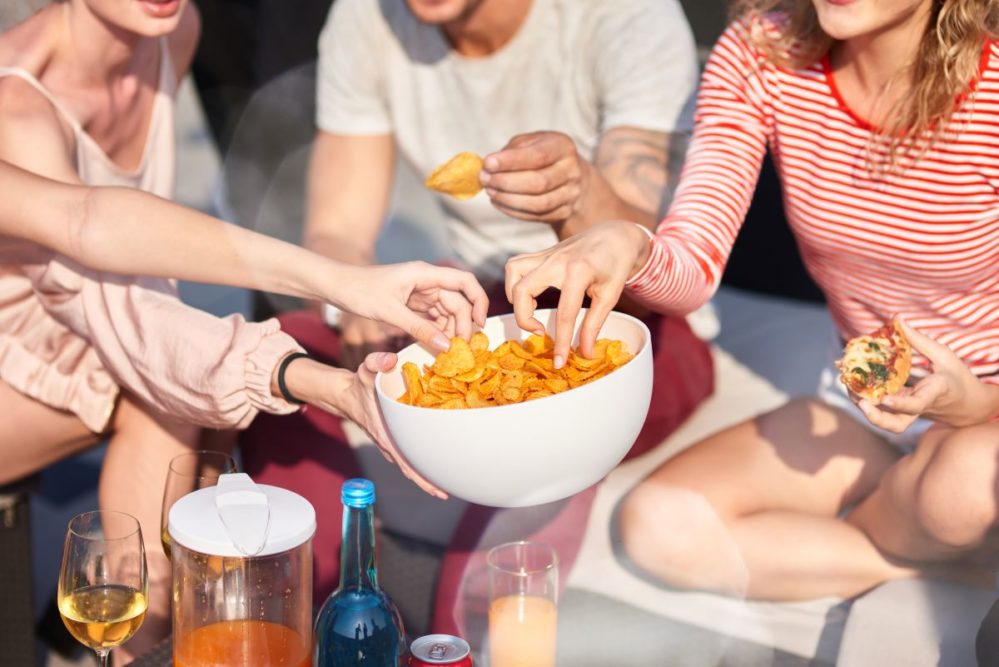
Snacking on the rise according to Mondelez report
Rising costs and economic setbacks haven’t been enough to deter strong consumer interest in snacking, according to Mondelez International, Inc.’s fourth annual State of Snacking report. The report, released Jan. 16, analyzed global consumer snacking habits and decisions.
Overall, the report revealed a maintained interest in snacking that continues to increase. Like in the 2021 report, 64% of consumers continue to prioritize snacking throughout the day over standard mealtimes. Another continued trend is mindful snacking, but this year with an emphasis on environmental consciousness versus 2021’s concern with nutrition and functionality.
The annual State of Snacking report is completed in partnership with The Harris Poll, which gathered data from thousands of consumers across 12 countries. In addition, this year’s report contains research from polling company Ipsos in partnership with The Food Institute.
Some of the report’s key insights this year pointed to the persistent popularity of snacking despite economic impediments, and showed a growing interest in environmentally and socially conscious snacking. Although 89% of consumers expressed concern for rising prices, 75% reported that they “always find room in (the) budget for snacks.” Sixty-nine percent of consumers said sustainable packaging increases the enjoyment of consuming a snack and 64% would pay more for snacks made using environmentally conscious ingredients and processes. Just ahead of environmental consciousness, 65% of consumers would pay more for snacks containing ethically sourced ingredients, according to the report.
“Our State of Snacking report confirms that in these trying times, consumers around the world view their favorite snacks as affordable and necessary indulgences,” said Dirk Van de Put, chairman and chief executive officer of Mondelez International. “Snacking continues to be a way for consumers to connect or to enjoy a moment of delight in their day, further demonstrating our belief that every snack can be enjoyed in a mindful way.”
As snacking continues to override three standard mealtimes, so too the definition of snacking continues to evolve and expand. Seventy-nine percent of consumers snack to connect with others and 71% agree that “sharing snacks with others is my love language,” according to the report. This percentage grows to 79% among millennials. While 68% of global respondents said their families sit down to snack together at least once a week, some countries polled particularly high in this category, including Mexico at 86% and India at 88%.
Compared to the poll results from 2019, respondents in 2022 showed an overall increase in weekly snacking across the board, particularly in the baked foods sector. Seventy-nine percent of consumers said they eat bread, rolls and wraps as snacks at least once weekly compared with 73% in 2019. The trend repeated across categories, with 65% eating cookies and sweet biscuits at least once weekly (vs. 60% in 2019), 55% eating savory biscuits and crackers (vs. 51%), 53% eating crisps, popcorn and pretzels (vs. 48%), and 51% eating cake and bakery sweets (vs. 49%).
Eighty-two percent of consumers around the world reported being more budget conscious when buying food than they were a year ago and 56% reported paying more for groceries. However, whereas 56% of respondents said they are spending more on fresh food and produce than they did a year ago, only 44% said they are paying more for snacks, according to the report. The comfort of snacking appears to override economic disruptions according to the poll’s data. Seventy-five percent of consumers said snacks are the “one thing” they can count on during difficult times. This number rose to 69% among Gen Z and 73% among millennials.
On the sustainability front, 70% of consumers believe that plant-based snacks are better for the environment in the long run. Seventy percent of consumers also agreed that they prioritize purchasing snacks with less plastic packaging. Across age groups, 63% of respondents said that snacks with a higher environmental impact should correspond with higher prices. This percentage increased to 69% among Gen Z and 70% among millennials.
Eighty two percent of consumers wished that more companies utilized biodegradable packaging for snacks and 61% agreed that they would pay a small carbon tax to help companies offset their environmental impact. Among the surveyed, 66% said they seek out snacks that work to minimize their environmental impact. This percentage increased to 72% for Gen Z and millennials. Globally, 70% of consumers believe that plant-based snacks are more environmentally friendly and this belief increased to 80% for consumers in Asia Pacific and 78% in Latin America, according to the study.
More than 35% of consumers reported that they already had tried a version of their favorite snack that substituted plant-based ingredients in place of meat or dairy, while 64% said they would be willing to try. Globally, 58% of consumers are making an effort to eat less meat and 49% are making an effort to eat less dairy.
“Today’s consumer is more conscious than ever about their consumption — and that includes health and well-being, as well as the impact on the planet,” said Martin Renaud, chief marketing and sales officer at Mondelez International. “The findings of this report continue to help inform our strategy as a global snacking leader with a focus on chocolate and biscuits and a commitment to mindful and sustainable snacking.”